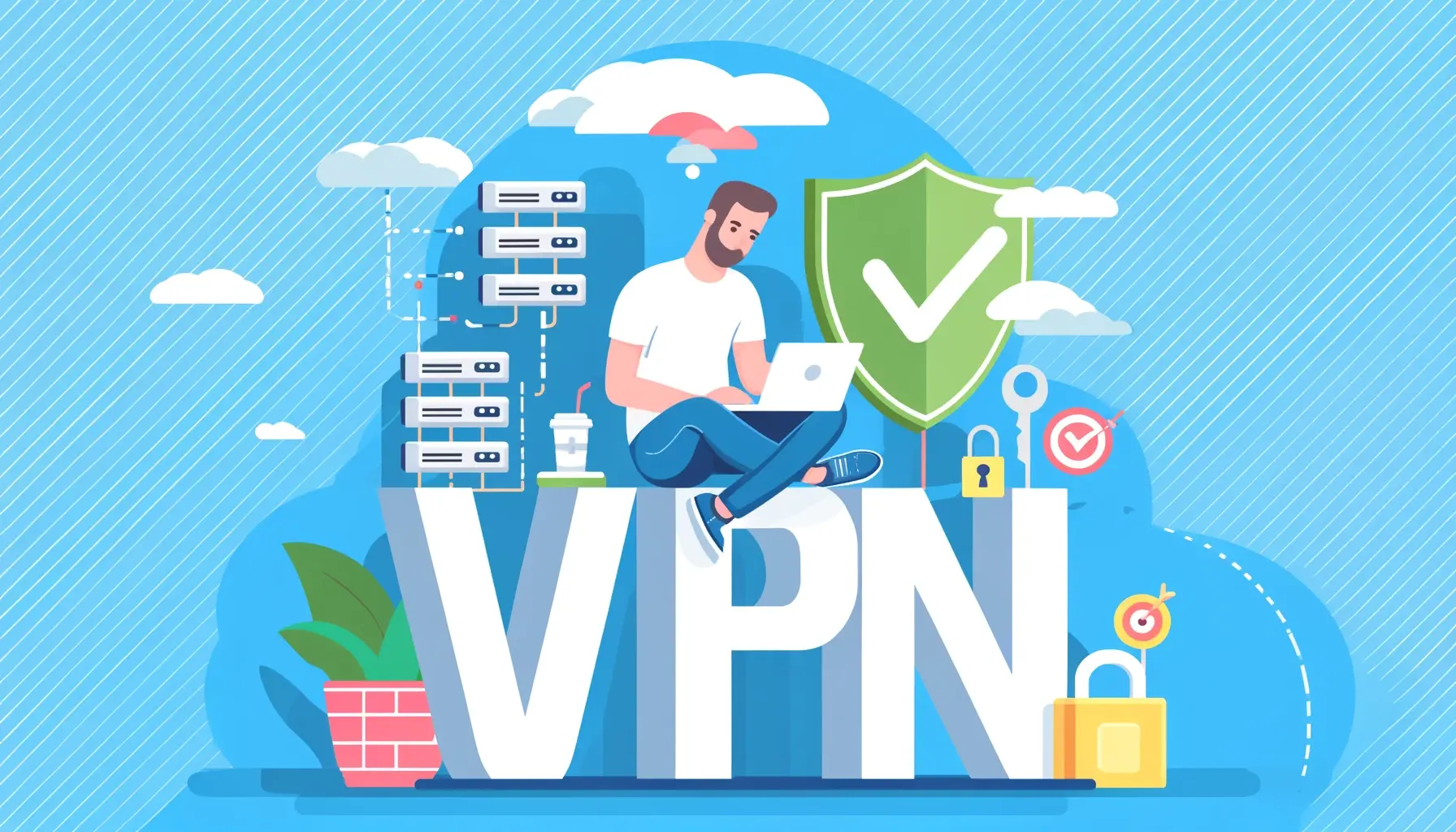
If you browse the web regularly, chances are you’ve seen VPN mentions in articles or ads. Maybe you’re even using one yourself, but are you familiar with SSL VPNs and how they work?
For those new to the subject, a VPN is a service that encrypts and routes your internet connection through a secure server, protecting your online privacy and allowing you to access restricted content by masking your IP address. But what is an SSL VPN, and how it differs from traditional services? This article reveals the differences.
Table of Contents
- What is an SSL VPN?
- How SSL VPN Works?
- Types of SSL VPN
- Advantages and Disadvantages of an SSL VPN
- SSL VPN vs IPsec VPN
What is an SSL VPN?
An SSL VPN, or Secure Sockets Layer Virtual Private Network, encrypts data transmission to ensure secure remote access to a network over the internet. It provides a secure communication channel using SSL/TLS protocols, the same cryptographic technology that secures websites. This functionality maintains the confidentiality and integrity of data as it travels between a user’s device and the network.
In essence, an SSL VPN allows you to connect to your organization’s or personal internal resources without exposing sensitive information to potential eavesdroppers. Unlike traditional VPNs, SSL VPNs do not require specific client software. Instead, they operate through standard web browsers, making them highly versatile and user-friendly.
How SSL VPN Works?
When you initiate a connection, the SSL VPN client communicates with the VPN server to authenticate your identity. This process often involves multi-factor authentication, allowing only authorized users to gain access.
Once authenticated, the client and server perform a TLS handshake to negotiate encryption parameters. It includes the exchange of digital certificates and the generation of session keys. These session keys are symmetric keys used for encrypting data during the session, ensuring confidentiality and integrity.
With the tunnel established, your data is encrypted end-to-end. Even if an attacker intercepts it, they won’t be able to read it. The SSL VPN then encloses your data packets, routing them through this secure tunnel to the server. The server decrypts the data and forwards it to its intended destination within the network.
During the session, SSL/TLS protocols continuously monitor and secure the connection, preventing potential tampering or eavesdropping attempts. As a result, sensitive information, such as login credentials and personal data, remains protected.
Types of SSL VPN
When considering SSL VPNs, you’ll encounter two primary types: SSL portal VPN and SSL tunnel VPN. Each type offers distinct methods for securing remote access and suits different cases and security requirements.
SSL Portal VPN
SSL portal VPNs offer a web-based interface that allows users to securely access a range of network services through a single, centralized web page. When you log into an SSL portal VPN, a dashboard is the gateway to your applications, files, and intranet resources. This approach employs HTTPS, ensuring that data transmitted between your browser and the VPN server is encrypted and secure.
You don’t need to install additional software on your device to use an SSL portal VPN. All you need is a web browser that supports SSL/TLS protocols. Once authenticated, you can interact with various services like email, file sharing, and corporate applications through the portal.
The VPN server performs deep packet inspection and enforces access control policies to ensure only authorized users can access specific resources.
SSL Tunnel VPN
Unlike SSL portal VPNs, SSL tunnel VPNs establish an encrypted tunnel between your device and the VPN server. This method employs the SSL/TLS protocol to create a secure and private connection.
When you enable an SSL tunnel VPN, your device and the VPN server authenticate each other, ensuring that both parties are legitimate. Once authenticated, the encrypted tunnel covers all data packets transmitted between your device and the server.
While SSL portal VPNs are limited to web-based applications, SSL tunnel VPNs can handle a wide range of traffic, including protocols like HTTP, FTP, and SMTP. To set up an SSL tunnel VPN, you need to install client software on your device. This software manages the encryption and decryption processes, keeping data confidential and intact during transmission.
Advantages and Disadvantages of an SSL VPN
Now, let’s see why SSL VPN is important and what drawbacks it may have. As always, with digital technologies, there are pros and cons to employing them for your particular needs.
SSL VPN Advantages
SSL VPNs are a significant element in modern network security and remote access for several compelling reasons:
- Enhanced Security for Remote Work: With the rise of remote work, securing the connections of employees accessing corporate networks from various locations is now necessary. SSL VPNs ensure that all data transmitted between the remote user and the company’s internal network is encrypted, preventing unauthorized access and data breaches.
- Flexibility and Convenience: SSL VPNs offer considerable flexibility because they only require a standard web browser for access. Employees and authorized users can connect to the VPN without installing and configuring additional software, which is essential for organizations with diverse IT environments and user bases.
- Secure Access to a Wide Range of Resources: SSL VPNs provide access to web-based applications and broader network services and resources, including file servers, email, and other critical applications. As a result, remote users can work efficiently without compromising security, maintaining productivity while protecting sensitive data.
- Scalability for Growing Businesses: As businesses grow, their need for secure remote access expands. SSL VPNs are inherently scalable, allowing organizations to add more users and resources without significant changes to the infrastructure. This scalability ensures that the security measures can grow with the business, providing consistent protection regardless of size.
- Cost-Effective Security Solution: Implementing an SSL VPN can be more cost-effective than other types of VPNs, especially considering the reduced need for specialized client software and extensive maintenance. Web browsers minimize compatibility issues and reduce the overhead on IT support.
SSL VPN Disadvantages
While SSL VPNs offer numerous benefits, they also have certain disadvantages that you need to consider. Everyone’s demands are different, and what works for someone could be an issue in a completely different environment.
- Performance Overhead: SSL encryption and decryption processes can introduce latency and reduce overall network performance. As data packets are encrypted and decrypted during transmission, the additional computational workload can slow down network speeds for bandwidth-intensive applications.
- Limited Compatibility with Non-Web-Based Applications: Although SSL tunnel VPNs can handle various types of traffic, SSL portal VPNs are limited to web-based applications. This limitation means that users relying on non-web-based applications (e.g., desktop applications or specialized software) may not benefit from an SSL portal VPN.
- Dependence on Web Browsers: The reliance on web browsers for SSL VPN access can be a double-edged sword. While it simplifies the connection process, it also makes the VPN susceptible to browser-related vulnerabilities. Users must ensure their browsers are up-to-date and secure, and IT departments must manage browser settings and plugins to avoid introducing additional security risks.
- Complex Configuration and Management: Setting up and managing SSL VPNs may not be an easy task, especially for larger organizations with diverse network environments. Configuring access controls, authentication mechanisms, and encryption settings requires expertise and careful planning. Maintaining these configurations over time, with frequent updates and changes to network infrastructure is not always straightforward.
SSL VPN vs IPsec VPN
Listed below are the key differences between these two types of VPNs:
- Security Protocol: SSL VPN uses Transport Layer Security (TLS) to secure the connection, while IPSec VPN employs the Internet Protocol Security (IPSec) suite to secure Internet Protocol (IP) communications by authenticating and encrypting each IP packet in a communication session.
- Client Requirements: You can access SSL VPN via a web browser without installing additional software. However, IPSec VPN often requires dedicated client software on the user’s device.
- Ease of Use: SSL VPN is easier to set up and use, particularly for remote users, because it needs just a browser to function. On the other hand, IPSec VPN requires more configuration and technical knowledge for initial setup and ongoing management.
- Performance: SSL VPN can be less resource-intensive and faster for web-based applications since it focuses on specific sessions. IPSec VPN handles broader traffic but may introduce more overhead due to its encryption and authentication processes.
- Compatibility: SSL VPN is more flexible and works on more devices, including smartphones, tablets, and various operating systems. The same can’t be said about IPSec VPN, which may face compatibility issues with firewalls and NAT (Network Address Translation) environments.
- Use Cases: SSL VPN is ideal for providing remote access to web applications, email, and limited network resources. It is suitable for users needing quick and easy access without deep integration. In contrast, IPSec VPN works best for site-to-site connections and scenarios requiring comprehensive network access, such as connecting remote offices to a central network.
Bottom Line
To conclude our “What is an SSL VPN?” article, SSL VPNs offer a secure, user-friendly solution for remote network access. They protect sensitive data confidentiality and integrity using the TLS protocol.
SSL VPNs are more accessible because they don’t require additional client software. While they are easy to use and effective, consider their limitations and compare them to IPsec VPNs for your specific needs.
Save 10% on SSL Certificates when ordering today!
Fast issuance, strong encryption, 99.99% browser trust, dedicated support, and 25-day money-back guarantee. Coupon code: SAVE10



























